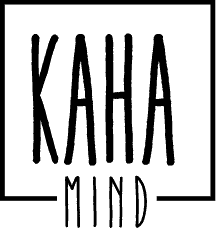
Art by Madeline Kate Martinez
We sat down with budding psychologist Qurat ul Ain to discuss mental health during this period of lockdown and social distancing. Here’s a bit of our conversation, with a special treat at the end for you!
Kaha Mind – Hi Qurat! So you’ve been vocal about mental health and you are really passionate about it. Could you tell us a little about where that comes from?
Qurat – I finished my Masters in Clinical Psychology last year. My passion for mental health is a result of multiple factors. Growing up in Kashmir and witnessing political unrest all my life, I think I was 14 or 15 years old when I realized its impact. Everyone around me was stressed out and anxious about the uncertainty that surrounded their financial, social and economic well-being. I noticed that people were exhibiting mental health concerns without even being aware of them. I have had a privileged life, but even in this privilege, nobody around me seemed okay. It was at this point that the political really became personal for me. My passion was also fueled by my own struggle with mental health, particularly anxiety which became intolerable when I moved to another state to study.
KM – Thanks for sharing that. I think right now, especially with COVID-19, you’ve been trying to spread awareness about the impact that it can have on people’s mental health?
Q – Yes. The rest of the country and the world has been under lockdown for 3 weeks, in Kashmir, our lockdown has lasted about 8 months and that too with low speed internet. There is limited awareness about mental health, especially in the context of Kashmir being a disputed, volatile land. With the onset of COVID in India, I noticed people panicking and stressing out. I assume that people, both in Kashmir and outside, might be having emotional difficulties and I want them to know it’s okay and it’s a normal response.
KM – Can you tell us a little about what this response looks like?
Q – It’s different for everyone. It can include higher anxiety levels, stress levels, low mood or panic attacks. People may exhibit worry over uncertainty, loss of concentration or have troubles with sleep or appetite. Additionally, there might be an increase in existential concerns like the lack of meaning in life or the fear of death. This can also intensify pre-existing mental health symptoms. For example, people who have obsessive compulsive disorder may show greater symptoms fueled by a fear of getting contaminated by the virus. It is also a difficult time for victims of domestic violence who live in abusive homes that they cannot leave. I really want people to know that they might be showing a response that’s alien to them, but it’s natural for the circumstances we live in.
KM – How has all of this impacted you and your mental health?
Q – It’s definitely adding to a state of uncertainty. I’ve had to put plans for work and study on hold because I don’t know what the next few months look like. I’ve been experiencing anxiety, distractibility, loss of focus, and panic like symptoms. I have also noticed a loss of pleasure in activities I previously enjoyed, say reading or watching films.
KM – I think that’s happening to so many of us – this reduced sense of enjoyment, even if nothing is happening to us directly and we’re safe at home.
Q – Yeah, I also believe that the suddenness of whatever has happened can contribute to that. This is not a weekend or a holiday that we planned or expected to happen. So there’s this confusion about what to do and how to respond.
KM – Yeah, so true. So how have you coped with this impact on your mental health – the panic, the reduced sense of pleasure and everything you just mentioned?
Q – Honestly, I’m still figuring it out. Something that has helped a lot is my reduced intake of the news. I don’t read it or constantly update myself about figures and curves. Secondly, I’ve not put this pressure on me saying “this lockdown is for 20 days so I should make the best of it”. I’m not burdening myself to be productive and this really helps reduce any feelings of guilt or dissatisfaction. I keep reminding myself that this is a global health emergency, and it’s not going to be easy for me to achieve so much. Something else that has been super helpful is contextualising my anxiety. I’m not berating myself for being anxious. All this being said, I really need to fix my sleep cycle, it’s gone for a toss. I think I might need to be stricter with setting a routine and also start doing some mindfulness and grounding exercises.
KM – Could you give me an example of ‘contextualising anxiety’?
Q – Since last year August, the situation has not been conducive to getting work done, so I was constantly blaming myself for being unproductive. Now, I contextualise it within this threat of the virus, that we barely understand. I sort of recognise what’s impacting me and then respond accordingly.
KM – That makes sense. You talked about what has worked for you, do you feel there are some things which haven’t worked?
Q – When this whole thing started, the obsession of being updated about what’s happening everywhere. That was not good at all. And also, this thought that I need to ‘finish’ everything I’m doing – reading, or watching or working, essentially demanding productivity all the time hasn’t been helpful.
KM – What would you tell our readers right now who might be struggling with similar concerns?
Q – I really believe that we all need to take a breather and give mental health its due. We have to acknowledge that whatever is happening in the world will have an impact on our mental health in small or big ways. It is also important to analyse your thoughts and see how helpful a certain thought might be. In such uncertainty, we might resort to extremes or thoughts not rooted in objectivity. Plus grounding exercises have been shown to be really helpful for exercises – engage your 5 senses by trying to pick up what you can see, hear, touch, smell, taste around you.
I think I can’t recommend therapy enough right now. Talking to a professional about your concerns will be extremely helpful. A lot of therapists are seeing clients online, over video or call. So accessing that is key. Finally, constantly talk about your emotions/thoughts to your support system, whoever that may be. Emotionally disconnecting from the people we care about is not helpful at all.
KM – Thanks so much Qurat for these tips. I think you have something special for our readers?
Q – Yes! So Qawwali and classical music have been helpful for me right now. It’s been therapeutic, I lose myself in it and clap along with it. So I thought I’d share a couple of playlists of songs that have helped me out, in case people would like to listen to them!
KM – For our readers – here are two Youtube playlists Qurat curated for us. We hope you enjoy them!

Qurat ul Ain is a psychologist in the making. She is especially passionate about mental health related to trauma in conflict zones, chronic pain and certain personality disorders. She is usually engrossed in a book, film or singing out of tune.
If you’d like to talk about how COVID – 19 has impacted you, we’re here for you. Our therapists at Kaha Mind are trained, and have experience conducting sessions over video, call and chat. If you have questions about online therapy or would like to connect with one of them, we’d love to help. Email us at hello@kahamind.com or Whatsapp +917483183313.

